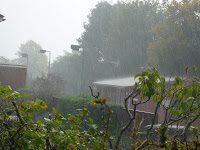Alexander Seaton, the hero and narrator of The Redemption of Alexander Seaton, was an aspirant to the ministry but was denied this position at his trials because of sinful behaviour. He is now a reluctant schoolmaster regarded by most in the town with a wary contempt. One of his few friends in the burgh Charles Thom is accused when the apothecary's apprentice Patrick Davidson, is murdered with a rare botanical poison. Apparently the well travelled and educated Davidson, the provost's nephew, stole the affections of the daughter of the house, Marion Arbuthnott from a smitten Charles Thom.
Charles is thrown into the tolbooth, and Alexander and another friend the doctor James Jaffray vow to prove his innocence
When a search of the victim's possessions discover accurate maps of the coastline and other strategic points the provost William Watt, Baillie Buchan, and notary public of the burgh of Banff Thomas Stewart decide to send Alexander to Robert Gordon of Straloch, who is skilled in cartography for his opinion about the maps.
Was Patrick Davidson a popish agent? Is that the reason for his murder?
There is widespread fear of Catholic plots and foreign invasions and although Robert Gordon is a suspected papist his expertise and knowledge of cartography is needed.
Alexander is due anyway to travel to Aberdeen to buy books and enquire as to the standard of Greek needed for one of his pupils to gain a bursary to Marischal College.
In a series of recollections and discussions we learn that Alexander was the constant companion of Archie Hay, the laird of Delgatie's son, who went off to fight and die for Elizabeth of Bohemia, the Winter Queen, daughter of King James in the German wars. The reader also learns the reason for Alexander's disgrace and I won't spoil that discovery for you by mentioning it here.
When Alexander returns from his journey to Aberdeen, Banff is in turmoil because there has been another murder , an event which has inflamed bigotry and lead to the terror of the witch hunt rearing its ugly head.
Alexander with the help of the mysterious wise woman of Darkwater must solve the murders and save the burgh from the Devil.
I will note at this point that a few years ago I attended a lecture at Exeter University where a friend from Dundee [who had left Scotland many many years before] jumped up at the mention of King James I of England, and shouted he was King James VI of Scotland in order to educate the English.
The Redemption of Alexander Seaton is the debut novel by Shona MacLean, mother of four and niece of the famous thriller writer Alistair MacLean, although the reader will think it the work of a much more experienced writer.
The book is brilliantly evocative of the period and one fully expects John Knox to jump off the page and start a blistering sermon at any moment. Shona MacLean, who has an M.A. and PhD in educational provision during the 17th century uses her considerable knowledge to create a real and believable world full of bleak dour characters [apart from the dead Archie Hay], who quote the Hebrew prophets and live in fear of the Kirk session.
'Hosea, chapter four:"Hear the word of the Lord ye children of Israel; for the Lord hath a controversy with the inhabitants of the land, because there is no truth, nor mercy, nor knowledge of God in the land."'
Shona succeeds in the difficult task of pulling the reader into the mindset of the 17th century, which was so very different from that of our own time. The novel contains some superb vignettes of life in Aberdeen and at Robert Gordon of Straloch's castle, as well as accounts of the harsh treatment meted out to fallen women. It is an intelligent and exciting read with stunning descriptive passages that make you feel you are actually there in the freezing tolbooths or on the stool of repentance in the kirk in that cold miserable unforgiving Scotland of the 17th century.
If I have any criticism of the book it is that at 410 pages it is about 100 pages too long, and that there are numerous characters to remember, some of whom perhaps may possibly appear in sequels .
I also wonder why, and this book is not unique in this, the useful glossary is placed at the back rather than the front of the book. Also I suspect bayonets, as we understand them, had not been invented in 1626. But these are very minor quibbles, the novel is an excellent example of historical crime fiction in which evocation of the period, historical accuracy, and memorable characters are as important as the plot.
The Redemption of Alexander Seaton is the only Ellis Peters shortlisted novel that is not set during or relates to the Second World War, and this must make it a very strong contender for the prize.
The 17th century is such a fascinating and interesting period of history with so many uniquely characters that hopefully Shona MacLean will write some sequels.









 D is for Dashiell Hammett, a mini biography.
D is for Dashiell Hammett, a mini biography. 

.jpg)







 I thought I would belatedly join this meme at Kerrie's Mysteries in Paradise and start with C is for Colin Cotterill.
I thought I would belatedly join this meme at Kerrie's Mysteries in Paradise and start with C is for Colin Cotterill. 





























